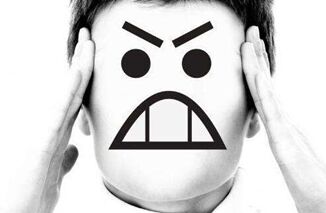这些迹象表明你可能患有焦虑性障碍
|
What's normal? Everyone gets nervous or anxious from time to time-when speaking in public, for instance, or when going through financial difficulty. For some people, however, anxiety becomes so frequent, or so forceful. Sleep problems Trouble falling asleep or staying asleep is associated with a wide range of health conditions, both physical and psychological. And, of course, it's not unusual to toss and turn with anticipation on the night before a big speech or job interview. But if you chronically find yourself lying awake, worried or agitated-about specific problems (like money), or nothing in particular-it might be a sign of an anxiety disorder. By some estimates, fully half of all people with GAD experience sleep problems. Chronic indigestion Anxiety may start in the mind, but it often manifests itself in the body through physical symptoms, like chronic digestive problems. Irritable bowel syndrome (IBS), a condition characterized by stomachaches, cramping, bloating, gas, constipation, and/or diarrhea, "is basically an anxiety in the digestive tract," Winston says. IBS isn't always related to anxiety, but the two often occur together and can make each other worse. The gut is very sensitive to psychological stress-and, vice versa, the physical and social discomfort of chronic digestive problems can make a person feel more anxious. Can you tell if your everyday anxiety has crossed the line into a disorder? It's not easy. Anxiety comes in many different forms-such as panic attacks, phobia, and social anxiety-and the distinction between an official diagnosis and "normal" anxiety isn't always clear. Excessive worry The hallmark of generalized anxiety disorder (GAD)-the broadest type of anxiety-is worrying too much about everyday things, large and small. But what constitutes "too much"? In the case of GAD, it means having persistent anxious thoughts on most days of the week, for six months. Also, the anxiety must be so bad that it interferes with daily life and is accompanied by noticeable symptoms, such as fatigue. "The distinction between an anxiety disorder and just having normal anxiety is whether your emotions are causing a lot of suffering," says Sally Winston, PsyD. , |









